Childhood and Teenage Mental Health Issues We Treat
Cumberland Hall’s inpatient program welcomes children ages 4 to 17 who need crisis intervention or stabilization.
We can help address a variety of mental health disorders in children and adolescents, including:
- Anxiety or social anxiety that severely affects your child’s ability to function
- Bipolar disorder
- Major depressive disorder
- Oppositional defiant disorder, which involves frequent angry outbursts, arguments and defiance
- Schizophrenia
- Severe autism spectrum disorders
- Suicidal thoughts
- Trauma or post-traumatic stress disorder (PTSD)
Many youths have complex mental health needs or more than one mental health diagnosis at the same time. We can handle even the most challenging cases. We are ready to address multiple diagnoses, suicidal thoughts or actions, substance use disorders and aggression.

Who is eligible for pediatric inpatient mental health care?
To be eligible for the children’s inpatient program, a child must:
- Be 4 to 12 years old
- Be a potential danger to self or others
- Have behavioral issues, psychiatric symptoms or mood disorders
For the adolescent inpatient program, the person must:
- Be 13 to 17 years old
- Have behavioral issues, psychiatric symptoms or mood disorders
- Have tried outpatient treatment without success
Behavioral Therapy for Children and Adolescents
Our program uses two evidence-based therapeutic models: cognitive behavioral therapy (CBT) and dialectical behavior therapy (DBT). Caregivers at Cumberland Hall are extensively trained in both methods.
- CBT is a form of psychotherapy that helps people identify the ways they think, feel and behave. It then helps them use that awareness to improve their thoughts, feelings and behaviors.
- DBT focuses on building a life worth living, which looks different for every person. It can help people manage even the most challenging mental health disorders.
During one-on-one sessions and group sessions, our staff use CBT and DBT to help teach youth and their families the skills and tools they need to:
- Cope with challenging or distressing situations
- Establish healthy boundaries with others
- Improve interpersonal skills and communication to enhance relationships with others
- Improve decision-making skills
- Lessen feelings of depression, anxiety and stress
- Recognize, accept and manage intense emotions and negative thoughts
- Reduce impulsive and self-harming behaviors
- Strengthen confidence, self-worth and self-esteem
Cumberland Hall’s Children’s Psychiatric Hospital
We believe that your environment is part of your healing process. Our building in Hopkinsville, Kentucky, opened in 2012 in a peaceful, farm-like setting. Inside the 59,000-square-foot building are a variety of spaces designed with your child’s health and healing in mind:
- Separate units for children aged 12 or younger and those aged 13-17
- Clinical spaces for treatment
- Community areas for group sessions
- Private offices for individualized counseling
- School so that children and adolescents can maintain academic progress
Physical activity is important for mental health, so children have dedicated recreational time in our:
- Basketball court
- Full-sized gym, including weightlifting equipment
- Outdoor playground
- Land for equine (horse) therapy, which can promote relaxation, trust and recovery
- Pool table
- Rock wall
Families and caregivers are an important part of every child’s care. They are involved in all discussions and decisions about care. They are welcome to visit two afternoons a week, and your child has time to talk on the phone every day.
Inpatient Pediatric Psychology Providers
A child or adolescent with a mental health disorder needs a dedicated staff providing holistic care that addresses a wide variety of needs. Your child works with several providers, including:
- Pediatric psychiatrist
- Nurse practitioner specializing in psychiatric mental health
- Nurses
- Therapists
- Nutritionists
- Mental health technicians
- Office staff
Our providers manage medications, provide intensive therapy and address substance use when needed. They also:
- Help each child meet basic goals of care before discharge
- Manage medication side effects, as well as make sure that meds are taken on time
- Maximize nutrition for mental health and address disordered eating, allergies, diabetes or other food-related conditions
- Teach and encourage good sleep hygiene to enhance mental health
The average inpatient stay is 5-10 days, depending on when your child meets their treatment goals. Before discharge, we develop an individualized plan of care to help them adopt healthier behaviors. The plan often involves connecting families with outpatient therapy as the next step in the journey.
Get Help Now
Contact us to discover how Cumberland Hall can help your child and family heal.
If you believe your child is experiencing a mental health crisis, CALL 988 or seek the nearest emergency room. For physical health emergencies, CALL 911 or get to the nearest emergency room.

